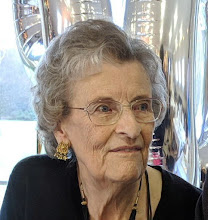 Shortly before Christmas I visited a Festival of Christmas Trees in our local Roman Catholic Church. There were 40 trees, each decorated by a different group in the community, including schools, playgroups, Brownies, charities and so on, and also sponsored by local bodies, shops etc. I have never seen such a thing before and the effect was incredible. A friend commented, a touch drily I thought: “Nice to see the church embracing the pagan so thoroughly”.
Shortly before Christmas I visited a Festival of Christmas Trees in our local Roman Catholic Church. There were 40 trees, each decorated by a different group in the community, including schools, playgroups, Brownies, charities and so on, and also sponsored by local bodies, shops etc. I have never seen such a thing before and the effect was incredible. A friend commented, a touch drily I thought: “Nice to see the church embracing the pagan so thoroughly”.I don’t have any difficulty with different belief systems borrowing each other’s
 symbols. Does anyone find it strange that for so many of them the lighting of candles is a significant part of their ritual? For myself, I feel in my heart that a living flame is a powerful symbol of hope, prayer or celebration, and although I consider myself an agnostic, I will always light a candle in a church when I have an opportunity. By the same token, I can go into an empty church and feel the power of the human love, endeavour and aspiration that is stored within it, even though I do not choose to worship there with its congregation.
symbols. Does anyone find it strange that for so many of them the lighting of candles is a significant part of their ritual? For myself, I feel in my heart that a living flame is a powerful symbol of hope, prayer or celebration, and although I consider myself an agnostic, I will always light a candle in a church when I have an opportunity. By the same token, I can go into an empty church and feel the power of the human love, endeavour and aspiration that is stored within it, even though I do not choose to worship there with its congregation. It seems to me that most religions offer much the same things: explanations for the apparently unexplainable; some sort of structure and guidance for our lives; comfort, support and courage; a sense of community with one’s fellow human beings; and perhaps a vehicle for a sense of wonderment at what we see about us. If this is so, then the different religious belief systems could all be considered as allegories for the truth – the one universal truth (as it must be) which humankind has not yet understood in its totality, but in which all believers in their own way have faith.
It seems to me that most religions offer much the same things: explanations for the apparently unexplainable; some sort of structure and guidance for our lives; comfort, support and courage; a sense of community with one’s fellow human beings; and perhaps a vehicle for a sense of wonderment at what we see about us. If this is so, then the different religious belief systems could all be considered as allegories for the truth – the one universal truth (as it must be) which humankind has not yet understood in its totality, but in which all believers in their own way have faith.
This idea I find very liberating: as an agnostic I too am looking for the same things, so I should be able to go into any church, join any group of worshippers, and share in their observance, while still remaining true to my own beliefs. The fact that I cannot subscribe to their dogma is not significant, as by sharing in their worship I am still celebrating the truth, the reality of our creation and existence, whatever that may be.
The truth is One, but different Sages call it by Different Names.




No comments:
Post a Comment